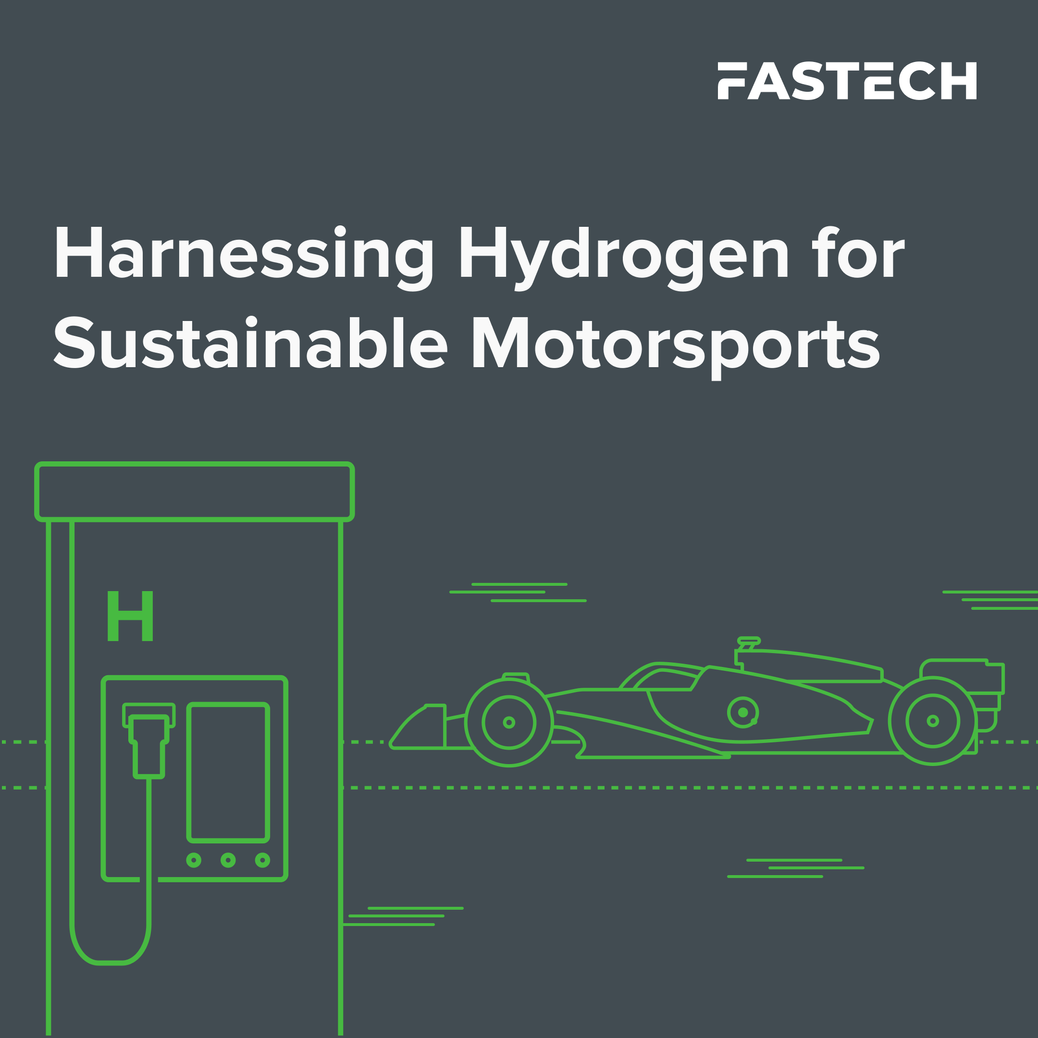Harnessing Hydrogen for Sustainable Motorsports

Much of the talk about how hydrogen is leading the charge in the alternative energy market has to do with clean energy infrastructure. Hydrogen will create industrial-level change through job creation, sustainable growth, and other opportunities that excite enterprises but may not jump off the page for the general public. However, a largely overlooked aspect is hydrogen’s potential in commercial markets, including entertainment by way of the fast-growing motorsports industry.
Experts have long understood that the future of automotive innovation is hydrogen. It follows, then, that the scientists, athletes, and viewers involved in motorsports stand to benefit immensely from further developments in hydrogen motorsports power.
The Hydrogen Motorsports Industry
Motorsports have seen an incredible boom in the US since 2021, thanks in part to the success of Netflix’s Drive to Survive series. Per-race viewership ballooned to over 1.5 million views in 2022 after the show’s 2019 release. And the inherent psychological thrill of the sport has piqued interest in the mechanics of motorsport, which is increasingly hydrogen-driven.
While experts have long known hydrogen's potential for motorsports, global racing giants like the Fédération Internationale de l'Automobile (FIA) are now taking notice.
In 2025, the FIA will debut the Extreme H World Championship series, pitting best-of-class hydrogen-powered off-road vehicles to the test alongside other marquee events like Formula 1 (F1). This comes on the heels of the Extreme E series, which champions the power and potential of Hydrogen, being recognized officially as an FIA championship in 2024.
Developments like these have led experts at Motorsport Network to speculate about timing, namely when—not if—widespread hydrogen adoption in motorsport will happen.
The Sustainability Impact of Hydrogen Motorsports
At a base level, embracing hydrogen fuel has the potential to drastically reduce the greenhouse gas (GHG) emissions of races. Per the US Department of Energy, one of the benefits of hydrogen fuel is that it carries the potential for near-zero GHG emissions.
However, while the FIA is accelerating hydrogen in an attempt to become carbon neutral, it’ll take more than hydrogen-powered cars to approach that reality. As noted in The Athletic, F1’s and the FIA’s journey to becoming sustainable faces many challenges. Regardless of the carbon footprint of the supercharged cars racing, much of these events’ environmental impact comes from the logistics—a single race can mean up to 256K in CO2 tons, as of 2019.
What this means in practice is that the biggest impact hydrogen may have is in the background, supporting its rise in the FIA and motorsports more broadly. The more hydrogen cars there are in races, the more infrastructure is needed for cars—and their crews, etc.—to compete.
And the more infrastructure there is, the more feasible it is for others to take advantage.
In this way, the FIA taking hydrogen seriously as a driver for growth and making good on its carbon-neutral commitments is helping to build renewable energy resilience in the industry.
What remains to be seen is the implications this will have outside of motorsports.
Motorsports as a Catalyst for Clean Energy Adoption
One of the biggest immediate impacts of FIA’s adoption of hydrogen, coinciding with F1’s meteoric rise in popularity, will be in the broader auto market. Consumer demand and manufacturers’ research and development budgets are already prioritizing hydrogen power.
Consider, for example, how many manufacturers are working on hydrogen fuel cell vehicles:
- BMW’s i Hydrogen NEXT and i Hydrogen pilot fleet, setting the stage for innovation
- Toyota’s Hilux, Yaris H2, and innovative fuel-cell commercial vehicles (FCEVs)
- Hyundai’s industry-leading NEXO, N Vision 74, and commercial FCEVs (i.e., XCIENT)
- Honda’s venture into fuel-cells in domestically-produced plug-in hybrid CR-Vs
Motorsports are more than a testing ground for innovative automotive technologies. They’re a wide-scale, informal focus group on what consumers are excited about in the cars of the future.
Realizing and Leveraging Hydrogen’s Promise
A landmark 2023 study found that consumers are on board with a hydrogen-powered future. That means that hydrogen should be a priority for automakers and other stakeholders across industrial niches moving forward—for business reasons if none other.
FASTECH is a leading provider of renewable engineering, procurement, and construction (EPC) services. We believe in a future defined by hydrogen and other clean energy sources in wide consumer- and industrial-grade use cases spanning motorsports to manufacturing. It all starts with infrastructure, and we’re committed to making a hydrogen-first market a reality.
To learn more about hydrogen fuel and its promise, contact us today.




